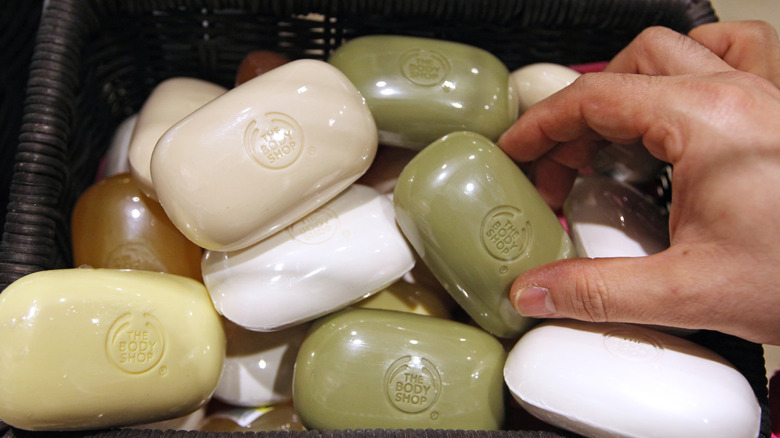The Disturbing Truth Of The Woman Who Turned People Into Soap
Some serial killers keep grisly trophies of their victims, but Italy's first female serial killer had a particularly interesting — and grotesque — method of disposing of her victims. According to All That's Interesting, the killer in question was Leonarda Cianciulli, an Italian woman who only had four children survive their youth after 17 pregnancies. In 1939, when her oldest son Giuseppe went off to fight in World War II, the fiercely protective and superstitious Cianciulli would worry dearly for her son. In fact, she would soon take to gruesome means to ensure her beloved child returned home from the war.
Cianciulli struggled with suicide attempts, run-ins with the law, and homelessness after a devastating earthquake, along with her many miscarriages and infant deaths. She believed she was cursed by her mother and was told by a fortune teller that her destiny lay behind bars. Disturbingly, her superstitions were so strong that she believed the only thing that would ensure her son's safety was human sacrifice.
If you or anyone you know is having suicidal thoughts, please call the National Suicide Prevention Lifeline at 1-800-273-TALK (8255).
Cianciulli used her soap shop to hide bodies
According to Murderpedia, Leonarda Cianciulli moved with her family to the town of Correggio, where she would open a successful soap shop, with a side gig as a fortune teller. She began to reason that by sending God a body, He would not take her son away. When an old widower came to Cianciulli looking for a husband, she made up a suitor waiting for her in Croatia, complete with fake love letters. When the woman was ready to leave, Cianciulli offered her a drink of drugged wine and killed the unconscious woman with an ax. She chopped the body into several pieces and got rid of her blood by mixing it into tea cakes, which she offered to the other women around town.
Cianciulli continued to kill, using fat from her victim's bodies to make soap, while still creating her macabre cakes and chocolates from their blood. A sister of her third victim was able to connect Cianciulli to the crime, and when the police threatened to investigate Giuseppe, she came clean, discussing her crimes with casual ease. Cianciulli showed little remorse for the lives she had taken and the neighbors who unwittingly ate human meat and blood because of her; all that mattered was that Giuseppe returned from the war alive, which he did.

